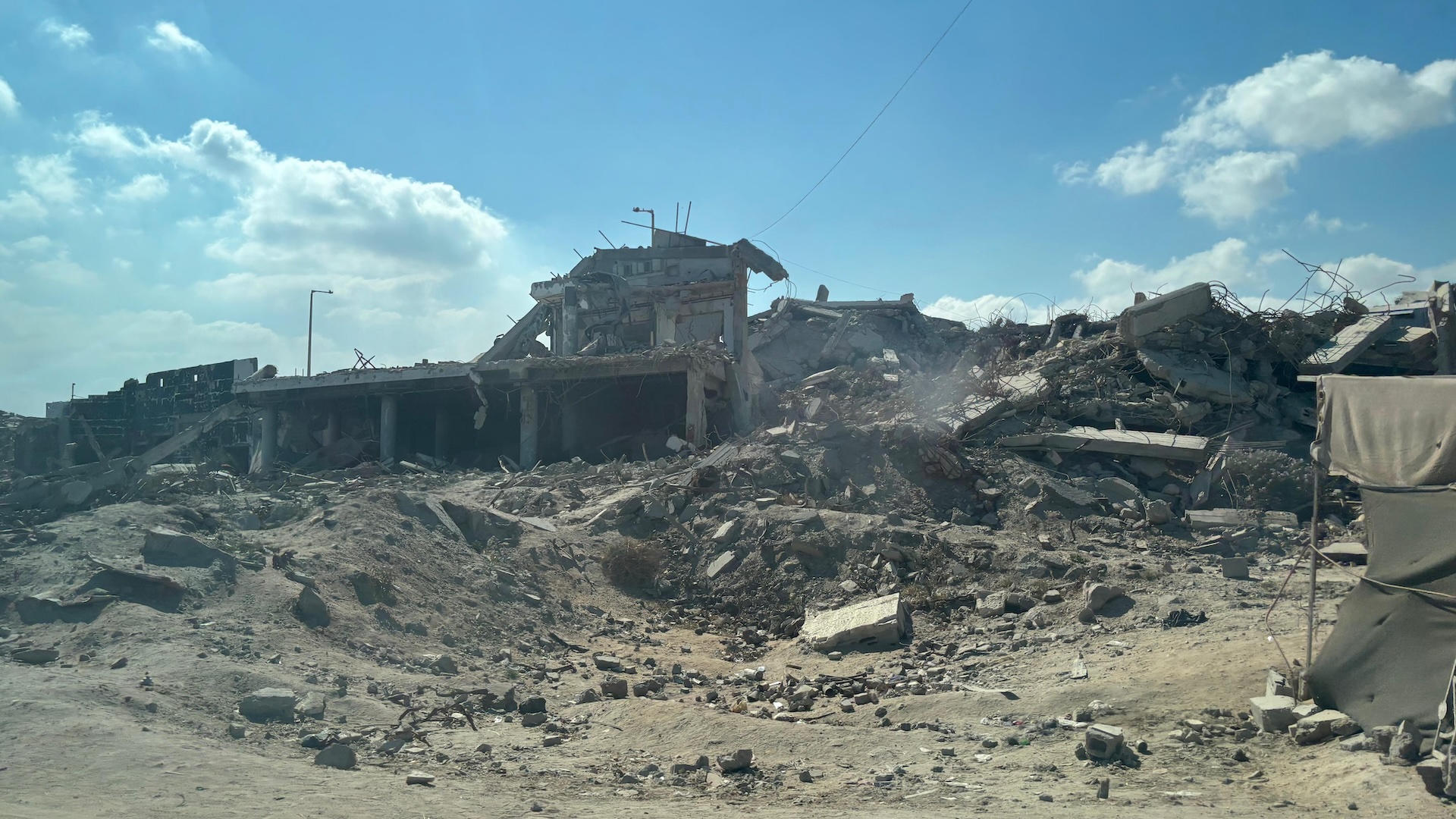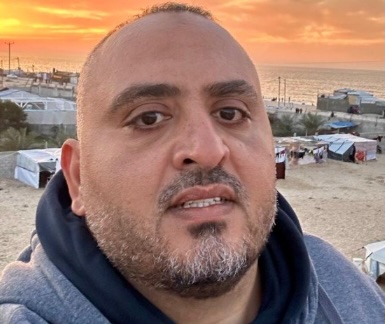My son Firas, 13, would count the tents every day and tell me how many had left. But when the bombing of multi-story buildings started, fear began to creep into my children’s hearts. I could see it in their eyes with every explosion and each displacement of a neighbourhood block. Firas and my daughter Toleen, 14, were constantly on their phones, following the news around the clock.
Suddenly, over the past three days, some of the nearby buildings began receiving displacement orders before being bombed. We saw families running through the streets carrying children – men in their pyjamas and women in prayer clothes, which have become the permanent outfit for most women in Gaza.
After the first building was bombed about 300 meters away from me, the internet line supplying our service was cut. That was the first stage of suffering – we felt isolated from the world. Then came the second strike, on a building no more than 200 meters from my home.
I had no time to leave before the explosion hit. I found my children in shock and fear unlike anything I had seen in this war so far. Smoke and ash from the blast entered our home. I tried to snap them out of it by telling them to put wet cloths over their mouths to breathe. I carried my youngest son, Ahmed, who is eight, down to the street so he could get some fresh air, then took him back upstairs to wash his face with water.
That same explosion destroyed the power lines that had been providing us with the bare minimum of four hours of electricity a day from external generators – which we relied on to charge our phones and laptop. It also shattered all the windows I had repaired when we first returned to Gaza. At that point, it became necessary to hold a family meeting to decide our next move.
We all sat together to make the final decision – whether to leave, where to go, and when. We all wept before uttering a single word about it, because leaving Gaza City feels like your soul is being torn from your body.
Advertising helps fund Big Issue’s mission to end poverty
My children had changed their minds and wanted to leave because of their fear, but my wife still refused, hoping a ceasefire could be reached at any moment.
When we laid out the available options, my workplace – the Norwegian Refugee Council (NRC) – offered me a place in a shelter prepared for staff – but it meant living in tents. The second option was going to my wife’s father’s house in Deir al-Balah, but that home had been heavily damaged during the latest incursion into the area two weeks earlier. So the choice was either to join other staff in the camp or move to a house directly on Salah al-Din Street, which had no basic services like water or electricity.
Shockingly, the whole family agreed to go to the damaged house without services rather than to the tents, even though the tents had all the basic facilities.
For me personally, the matter was extremely difficult because my older brother and his family live with my elderly father, who needs constant care – but there isn’t space for extended families in the staff camp. My father’s situation was my biggest concern. So I rented a small plot of land near the site NRC had secured, where I arranged a makeshift space: a few toilets, some water supply, a tent and chairs for my father, my brother and his family – before even thinking of myself.
This story is full of painful details. When you pack all your belongings by the door of your house, knowing you will never return to it again, it feels like death.
My youngest son asked me: “Dad, can we postpone leaving? Not tomorrow – maybe the day after. Today there weren’t so many nearby explosions.” He knows exactly what the journey of displacement means.
Advertising helps fund Big Issue’s mission to end poverty
Today, we are making the journey south.
Mohammed Aklouk is the Norwegian Refugee Council (NRC)’s shelter cluster information management coordinator in Gaza.
Do you have a story to tell or opinions to share about this? Get in touch and tell us more.
Reader-funded since 1991 – Big Issue brings you trustworthy journalism that drives real change.
Every day, our journalists dig deeper, speaking up for those society overlooks.
Could you help us keep doing this vital work? Support our journalism from £5 a month.
Advertising helps fund Big Issue’s mission to end poverty










